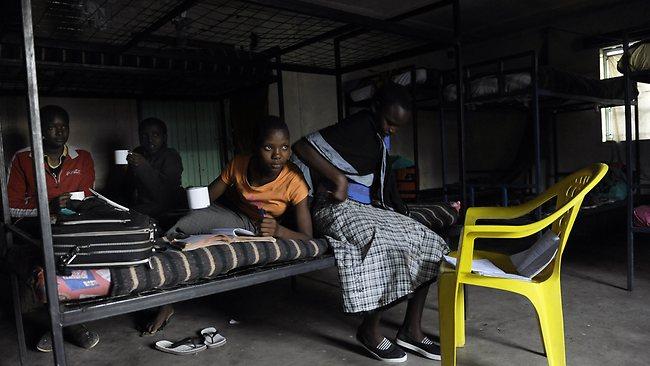
Chiefs have been identified as an integral part in the campaign to end Female Genital Mutilation (FGM) by 2022.
The Ministry of Public Service and Gender and the Anti-FGM Board have kicked off a nationwide campaign targeting 22 FGM hot-spot counties.
Chiefs have been identified as the crucial link in addressing the vice by virtue of being government officials working at the grassroots.
Chief Administrative Secretary Rachel Shebesh, Anti-FGM Board chairperson Agnes Pareiyo and CEO Bernadette Loloju have since met provincial administrators and other non-State actors engaged in championing for the abandonment of the vice.
Former chief
“We must do things differently if we are to achieve our target. We cannot afford to compromise the law by negotiating with perpetrators of FGM if we are to eliminate the vice. Chiefs must stamp their authority and stand with the girl-child,” said Ms Pareiyo.
Ms Loloju, while narrating her own experience as a daughter of a former chief, told chiefs they have immense authority and influence to cause positive change in their communities.
“The board has done a lot of awareness on the dangers of the vice and it is now up to the chiefs to enforce the law to avert more cutting of girls. It is also time that the communities embark on girl empowerment via education and celebrate their achievements,” she said.
The Maasai Council of Elders noted that FGM is no longer a cultural rite as it had been overtaken by events and proved to cause harm to women and girls.
The elders urged chiefs to use their power to end the practice and empower girls in order to better their future.
Deeply rooted
Narok County Commissioner Mr Evans Achoki committed to end FGM in the county by next year to set an example to other counties.
Ms Shebesh and the Anti-FGM board officials have been meeting regional commissioners, county commissioners, deputy county commissioners, assistant county commissioners, chiefs and their assistants and other key duty bearers to strategise on a work plan to end the practice deeply rooted in the 22 counties.
The committees, comprising of State and non-State actors, are expected to lead the war against FGM and deal with other challenges facing women and girls in their respective counties.
Stringent measures
They are expected to hold forums which will focus on sensitising stakeholders on the social pressures leading to FGM, health risks, law and evidence preservation for successful prosecution.
The forums are used to train police officers, chiefs and health professionals on FGM, evidence preservation and referral mechanisms.
Early this month, the government announced more stringent measures on the war against the vice.
Public Service and Gender Cabinet Secretary Prof Margret Kobia said among the initiatives include revising the eradication of FGM Policy to align it with current realities, developments and the constitution.
She said her ministry has also developed focused interventions to address FGM in key sectors such as health, education, security, access to justice and public information while emphasising participation as human rights approach to empowering girls and women.
Prof Kobia added that her ministry has also developed nine programs of actions to help the government eradicate the vice by 2020.
These include promoting education and community dialogues, enforcement of FGM laws, engaging boys and men, girls and women and entrenching FGM content in schools.
Other programs include strengthening capacity building, addressing cross-border FGM, addressing FGM in emergencies and humanitarian situation and women empowerment.
In November last year, President Uhuru Kenyatta issued a directive that spelt out his government’s commitment to eradicate FGM by 2022. He also launched the National Policy on Abandonment of FGM.
The policy puts cultural, religious leaders and elders from 22 FGM hotspot counties as key stakeholders who will partner with the government towards eradicating the outlawed practice in the country.
